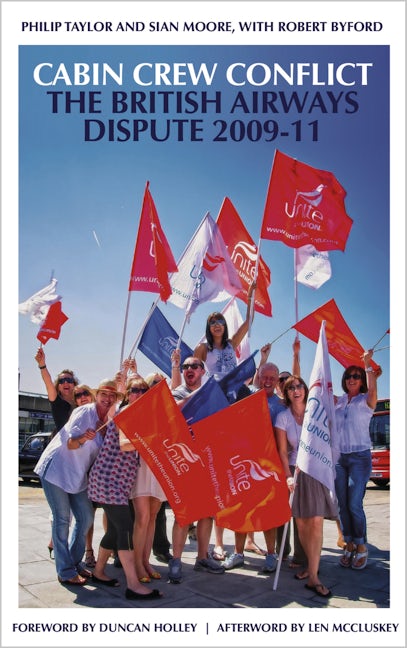
Cabin Crew Conflict
The British Airways Dispute 2009-11
Here, in their own words, Cabin Crew Conflict tells the strikers' story, focusing on cabin crew responses, perceptions of events, and their lived experiences of taking industrial action in a hostile climate. Foregrounding questions of class, gender and identity, and how these were manifest in the course of the dispute, the authors highlight the strike's significance for contemporary employment relations in and beyond the aviation industry.
Lively and insightful, Cabin Crew Conflict explores the organisational and ideological role of the trade union, and shows how a 'non-traditional' workforce can organise and take effective action.
Phil Taylor is Professor of Work and Employment Studies in the Department of Work Employment and Organisation at the University of Strathclyde. He has researched and written extensively on call centres, work organisation, global value chains, the future of work and trade unionism. He had edited the journals, Work Employment and Society and and New Technology, Work and Employment. He is the co-author of Fighting Fire (New Internationalist, 2018).
Sian Moore is Professor of Employment Relations and Human Resource Management and Co-Director of the Centre for Research on Employment and Work (CREW) at the University of Greenwich.
Robert Byford is a Lecturer and former cabin crew member who photographed the union meetings leading up to the strike.
Duncan Holley is the former Branch Secretary of BASSA, May 1998 - June 2012.
Len McCluskey is General Secretary of Unite the Union.
Acknowledgements
Foreword by Len McCluskey
Preface by Duncan Holley
Timeline
1. Introduction
2. Cabin Crew Collectivism
3. Project Columbus
4. Balloting, the Right to Strike and British Airways Counter-Mobilisation
5. Collective Organisation: The XXXX Campaign
6. Outcomes: Worlds Turned Upside Down
7. Conclusion
Afterword by John Hendy QC
Appendix: The Participants
Notes
Bibliography
Index
eBook ISBN: 9781786804907
150mm x 230mm

